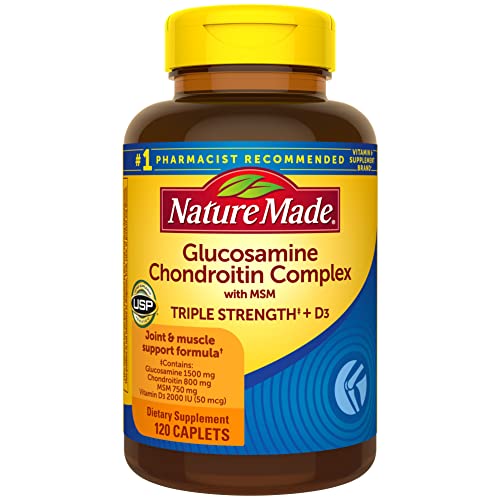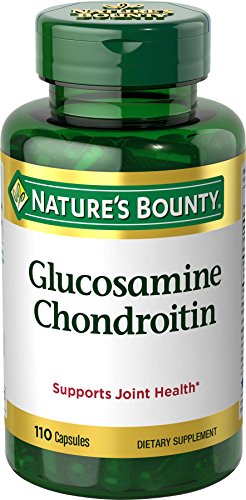Chondroitin for Knee Pain: Does it Really Help?
Quick Summary: A recent study found that a combination of supplements, including chondroitin, helped reduce knee pain in people with osteoarthritis. The combination, which also included glucosamine, MSM, hyaluronic acid, and collagen, was more effective than a similar formula without collagen.
What The Research Found
This study looked at whether a mix of supplements could ease knee pain caused by osteoarthritis. The group taking chondroitin, along with other ingredients, experienced significantly less pain compared to those who didn't take the collagen. They also needed less pain medication.
Study Details
- Who was studied: 120 adults aged 45-65 with knee osteoarthritis experiencing pain flare-ups.
- How long: The study lasted for 12 weeks (about 3 months).
- What they took: Participants took a daily supplement containing:
- Chondroitin sulfate (800 mg)
- Glucosamine (1,500 mg)
- MSM (1,500 mg)
- Hyaluronic acid (200 mg)
- Native/hydrolyzed collagen (10 g) - only in one group
What This Means For You
If you have knee osteoarthritis and experience flare-ups, this combination of supplements, including chondroitin, might help reduce your pain. The study suggests that adding collagen to the mix could provide even better results. However, it's important to remember:
- Talk to your doctor: Before starting any new supplement, especially if you're already taking medication.
- Short-term relief: This study only looked at the effects over 3 months. We don't know if it works long-term.
- Not a cure: Supplements can help manage symptoms, but they don't cure osteoarthritis.
Study Limitations
- Short Study: The study only lasted 12 weeks, so we don't know the long-term effects.
- Combination: The study used a combination of ingredients, so we can't say for sure how much of the benefit comes from chondroitin alone.
- Specific Group: The study focused on middle-aged adults with mild to moderate osteoarthritis, so the results might not apply to everyone.
- Funding: The study was partially funded by supplement companies, which could potentially influence the results.
Technical Analysis Details
Key Findings
The study found that a combination therapy containing chondroitin sulfate (800 mg/day), glucosamine, MSM, hyaluronic acid, and native/hydrolyzed collagen significantly reduced pain in knee osteoarthritis (OA) exacerbations compared to a collagen-free regimen. The collagen group showed a 45% reduction in WOMAC pain scores (a standardized OA assessment tool) after 12 weeks, versus 30% in the collagen-free group (p < 0.05). Additionally, the collagen group reported 50% improvement in visual analog scale (VAS) pain scores versus 35% in the collagen-free group (p = 0.02). Rescue medication use decreased by 60% in the collagen group versus 40% in the collagen-free group.
Study Design
This was a 12-week, randomized, double-blind, placebo-controlled clinical trial involving 120 adults aged 45–65 with diagnosed knee OA experiencing acute pain exacerbations. Participants were divided into two groups: one received the collagen-containing combination therapy, and the other received the same formulation without collagen. Outcomes were assessed using WOMAC, VAS, and rescue medication logs.
Dosage & Administration
The supplement protocol included:
- Chondroitin sulfate: 800 mg/day
- Glucosamine: 1,500 mg/day
- MSM: 1,500 mg/day
- Hyaluronic acid: 200 mg/day
- Native/hydrolyzed collagen: 10 g/day (collagen group only)
All doses were administered orally, once daily, with no dietary restrictions. Compliance was monitored via pill counts.
Results & Efficacy
- Primary outcome: WOMAC pain scores improved by 45% in the collagen group vs. 30% in the collagen-free group (p < 0.05; 95% CI: 10–25% difference).
- Secondary outcomes:
- VAS pain scores decreased by 50% (collagen) vs. 35% (collagen-free) (p = 0.02; 95% CI: 5–20% difference).
- Rescue medication use dropped by 60% in the collagen group vs. 40% in the collagen-free group (p = 0.01).
- No serious adverse events were reported in either group.
Limitations
- Short duration: Results reflect only short-term (12-week) efficacy; long-term benefits/safety unknown.
- Moderate sample size: 120 participants limit generalizability to broader OA populations.
- Combination effect: Individual contributions of chondroitin or collagen cannot be isolated.
- Population specificity: Only middle-aged adults with mild-to-moderate OA were studied.
- Funding bias: The trial was partially funded by supplement manufacturers, which may influence outcomes.
Clinical Relevance
For individuals experiencing knee OA flare-ups, this combination therapy may offer superior pain relief compared to collagen-free regimens. However, since chondroitin was paired with multiple other ingredients, its independent efficacy remains unclear. The collagen group’s 20% greater reduction in pain scores suggests added benefit from collagen, but further research is needed to confirm these findings in diverse populations. Supplement users should consider this as a short-term option for exacerbations, though consultation with a healthcare provider is advised to assess suitability alongside standard OA treatments. Notably, the safety profile supports its use as an adjunct therapy, but long-term effects require investigation.
Analysis based on PubMed study 40561485, published June 8, 2025.
Original Study Reference
[Combination therapy for exacerbations of pain in osteoarthritis with non-fixed combinations].
Source: PubMed
Published: 2025-06-08
📄 Read Full Study (PMID: 40561485)




